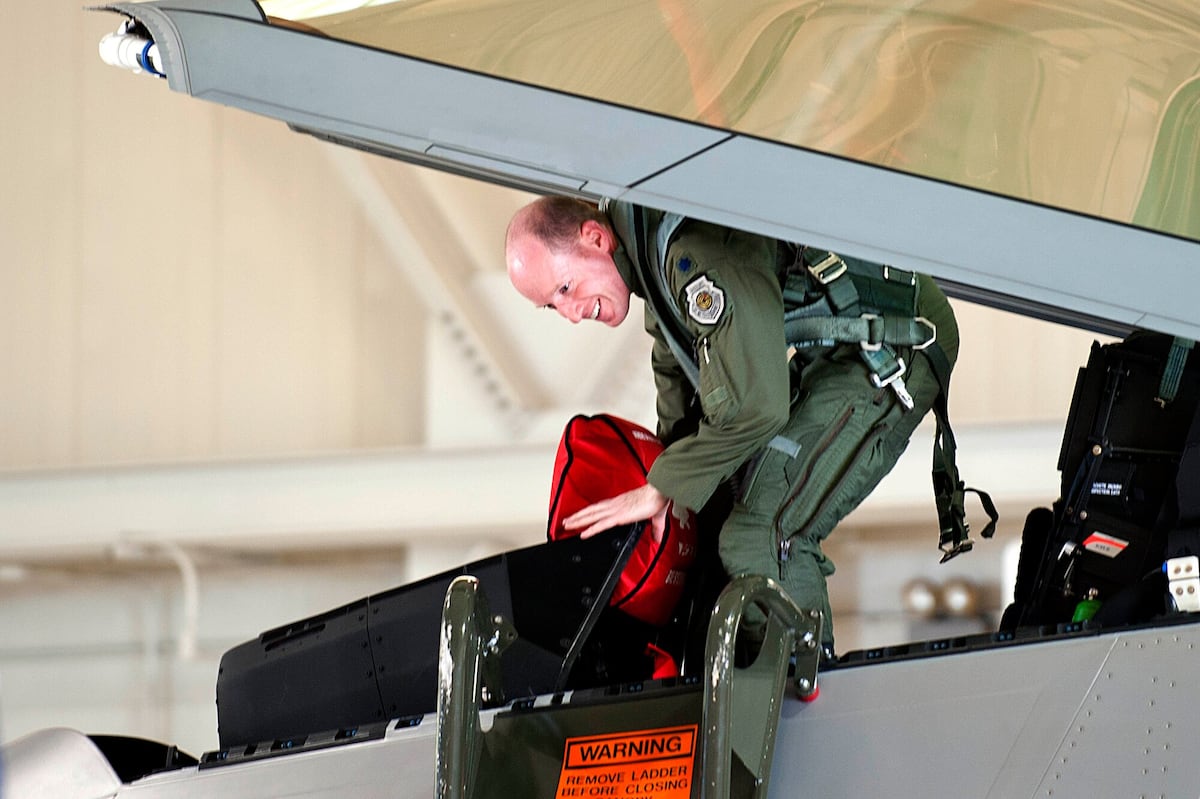THE HAGUE, Netherlands — Germany’s government intends to set up an airlift operation to provide humanitarian aid to the civilian population in the Gaza Strip, Chancellor Friedrich Merz announced on Monday.
Details of the operation, which will be carried out in cooperation with Jordan and with the backing of France and the United Kingdom, are still scarce. But previous German aid-dropping operations in the territory may give a glimpse of what to expect, according to a defense spokesman in Berlin.
Officials announced the new initiative following a Cabinet-level meeting, which Merz attended. He said the airlift, which was due to start “without delay,” would be jointly carried out by Germany and Jordan.
The Jordanian government said in an email to Defense News that the German announcement “came in response to a request by Jordan as the dire situation in Gaza worsens.”
The Kingdom bordering Israel to the east will provide “air support to the German aid mission,” which includes logistic support at the airbase, such as fuel and maintenance, among other logistical services, the Jordan Armed Forces said.
“The Jordanian army is ready to provide all types of support to ensure the success of the operation,” a spokesperson said.
Germany will also “closely coordinate” the plan with leaders in Paris and London, the chancellor said in a press conference following the Cabinet meeting.
Starting in November 2023, operation “Solidarity Path” marked one of the largest airdrop humanitarian aid missions to date, and Germany’s first foray into this type of project. At the time, 14 aircraft from nine countries dropped hundreds of tons of goods over Gaza, including ready-to-eat meals, water, flour, and baby formula.
Germany was involved in the mission starting in March 2024, at first flying its C-130 Hercules transport planes and later shifting to the country’s fleet of Airbus A400M, which have a larger carrying capacity. The German military has said that the missions were flown from “an airbase in Jordan.”
Open-source flight records identified the airport as King Abdullah II Air Base, located in the north of the country.
According to the German Ministry of Defense, three weeks passed between the idea to participate and the deployment of German forces to the region, and a novel airdrop system capable of safely delivering the aid was developed during that time.
Dubbed the “Low Cost Aerial Delivery System,” tightly-packed aid palettes were equipped with paratroopers’ chutes that had been withdrawn from service for being 22 years old. Each of the aid drops weighed roughly 430 kilograms. The procedure was specially developed for the mission and had not yet received clearance in Germany when operations in Gaza commenced under an emergency authorization.
In what one German soldier called “unprecedented,” 22 such parcels were loaded onto an A400M transporter, totaling over 9 tons. “The capacity limits of the aircraft were fully taken advantage of,” the German military boasted at the time. Constraints stem from the dimensions of the parcels and the extent of the drop zone more so than the load limits of the aircraft.
The previous German airdrop mission over Gaza ended in May 2024 after racking up a total of 150 flying hours and dropping 315 tons of food.
Meanwhile, Jordan has conducted 129 airdrops since the beginning of the war on Gaza, in addition to 269 joint airdrops in cooperation with other countries, the government said in response to a request.
Berlin’s decision to launch a new airlift mission comes amid a marked shift in tone from many world leaders as the human toll and suffering in Gaza have reached what many declared to be unacceptable levels, and even Israeli human rights organizations have labeled their government’s actions in the territory a “genocide.”
Condemnation has become louder on the international stage of Israeli Prime Minister Benjamin Netanyahu’s handling of the conflict and the military’s heavy-handed invasion of Gaza. Merz left the door open for punitive measures against Israel should upcoming talks fail, including stopping weapons deliveries or potentially even putting in place sanctions.
In recent days, Israel has somewhat relaxed its previously near-total blockade of the Gaza Strip, allowing trucks with aid to enter and facilitating the air-dropping of some food and medicine to the population.
Since Sunday, Jordan has conducted three air drops in different parts of the Strip, an armed forces spokesperson said.
Linus Höller is Defense News’ Europe correspondent and OSINT investigator. He reports on the arms deals, sanctions, and geopolitics shaping Europe and the world. He holds a master’s degrees in WMD nonproliferation, terrorism studies, and international relations, and works in four languages: English, German, Russian, and Spanish.
Read the full article here








Leave a Reply